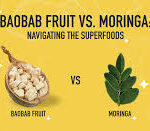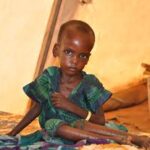Healthy Eating in Africa: Nutrition for a Better Future

Africa is a continent of rich cultures, fertile lands, and diverse food traditions. From traditional grains like millet and sorghum to superfoods such as moringa and baobab, African diets have the potential to promote good health, prevent disease, and support sustainable communities. Yet, millions across the continent still face malnutrition, food insecurity, and the growing threat of unhealthy eating patterns linked to urbanization and globalization. By prioritizing healthy eating, Africa can build a better future—one where its people thrive physically, mentally, and economically.
The Nutrition Paradox in Africa
Africa’s nutrition challenge is a paradox: some regions struggle with undernutrition while others face rising obesity rates. According to the World Health Organization (WHO), more than 250 million Africans are undernourished, lacking essential nutrients for growth and development. At the same time, urban centers are experiencing an increase in fast-food consumption, processed snacks, and sugary beverages—contributing to obesity, diabetes, and heart disease. This “double burden of malnutrition” highlights the urgent need for balanced diets and nutrition education.
Traditional African Foods: A Path to Wellness
One of Africa’s strengths lies in its traditional food systems. Diets rich in fresh vegetables, legumes, fruits, and whole grains have supported generations with energy and resilience. For example:
-
Millet and Sorghum – nutrient-dense grains packed with fiber and minerals.
-
Moringa – a superfood rich in vitamins A, C, and iron.
-
Baobab fruit – high in vitamin C and antioxidants.
-
Beans and Lentils – affordable protein sources that support heart health.
-
Leafy greens such as amaranth, spinach, and cassava leaves—full of calcium and iron.
By embracing these foods, Africa can reclaim its culinary heritage while tackling modern health challenges.
The Threat of Processed Foods
Urbanization has brought convenience but also health risks. Fast food chains, sugary drinks, and processed snacks are rapidly replacing home-cooked meals in many cities. These foods are often high in unhealthy fats, sugar, and salt, leading to chronic diseases like hypertension and type 2 diabetes. Unfortunately, children and young adults are the most vulnerable, as aggressive marketing often targets them. Educating families about the dangers of processed foods and promoting healthier alternatives is essential for long-term well-being.
Building a Culture of Healthy Eating
Healthy eating is not just about food—it’s about culture, education, and accessibility. Several steps can help build healthier communities:
-
Nutrition Education – Schools, media, and community programs can teach children and parents the importance of balanced diets.
-
Food Security Programs – Governments and NGOs must support farmers, improve storage systems, and reduce food waste.
-
Affordable Access – Healthy foods should be priced fairly, making them accessible to low-income households.
-
Policy Support – Governments can regulate processed food marketing, add nutrition labels, and encourage local food production.
-
Community Initiatives – From urban gardens to local food cooperatives, communities can take charge of their own nutrition future.
The Role of Technology and Innovation
Digital solutions are playing a key role in Africa’s nutrition future. Mobile apps can provide meal plans, track diets, and educate families about local healthy foods. E-commerce platforms now deliver fresh produce directly to homes, reducing dependency on unhealthy options. Technology also supports farmers by connecting them to markets and reducing post-harvest losses.
A Better Future Through Healthy Eating
Nutrition is the foundation of health, productivity, and progress. When Africans eat better, they live longer, perform better at work and school, and contribute more to their communities. A strong nutrition culture also means reduced healthcare costs, improved child development, and stronger economies.
By returning to traditional diets, limiting processed foods, and embracing innovation, Africa can lead a nutrition revolution. Healthy eating is not just about filling stomachs—it’s about fueling the future of a continent filled with potential.
Written by Fawzi Rufai, Medically Reviewed by Sesan Kareem



